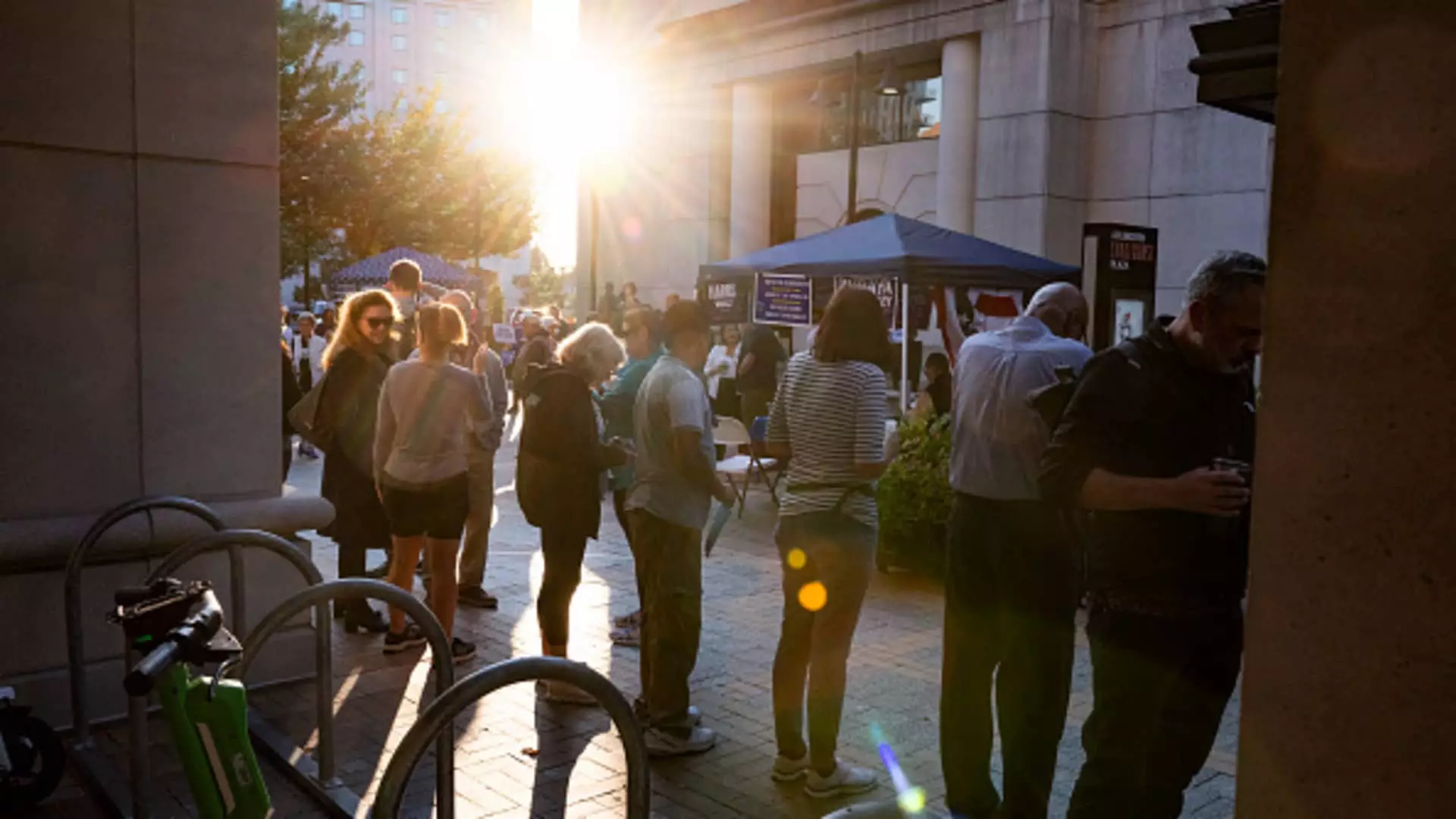In a recent decision that has stirred considerable debate, a federal judge halted Virginia’s efforts to purge its voter rolls of suspected noncitizens. The ruling, delivered by Judge Patricia Giles, follows a controversial directive from Governor Glenn Youngkin, which aimed to remove individuals identified as noncitizens based on their Department of Motor Vehicles (DMV) applications. This legal tussle comes just days before a crucial election, raising questions about voter integrity, government authority, and the potential ramifications for civic participation.
The crux of the legal conflict revolves around federal statutes that protect the integrity of voter registration processes. The U.S. Department of Justice (DOJ) argued convincingly that any systematic effort to remove individuals from voter rolls must not occur within a 90-day window leading up to an election, hence the judicial intervention. It is noteworthy that Governor Youngkin’s directive was issued precisely 90 days prior to Election Day, leading Judge Giles to conclude that the timing was not coincidental.
The implications of such legal standards are critical, as they are designed to prevent last-minute purges that could disenfranchise legitimate voters. Giles’ ruling mandates the reinstatement of over 1,600 individuals who had already been removed from the voter rolls, underlining the reality that systemic errors can lead to the wrongful disenfranchising of American citizens.
The reinstatement of these voters is not merely a procedural matter; it strikes at the very heart of democratic principles. Many voices within the community, including civil rights advocates, view the purge as a concerning trend that threatens the fundamental rights of eligible voters. This case exemplifies a broader issue wherein political motivations may cloud the integrity of electoral processes, potentially disenfranchising legitimate voters based on flawed assumptions about citizenship.
Governor Youngkin’s response to the ruling reflected these tensions. He asserted that allowing noncitizens on voter rolls directly undermines the electoral process and dilutes the votes of lawful citizens. Such statements serve to amplify the divisive discourse surrounding this issue, introducing an atmosphere of suspicion that may deter voter turnout and engagement, thereby further destabilizing democratic processes.
As the appeal process begins—promising further legal scrutiny—the future of voter roll management in Virginia hangs in the balance. The situation underscores the complexities of maintaining voter integrity while respecting the rights of citizens. As the court battle unfolds, stakeholders on all sides of the political spectrum must grapple with the implications of prioritizing voter security over access.
This case serves as a reminder of the ongoing struggle to balance the ideal of a robust democracy—where every eligible citizen has the right to vote—with the imperative to ensure that voting processes remain fair and secure. As states navigate these challenges, the Virginia case may serve as a precursor and a cautionary tale for jurisdictions across the nation facing similar complexities in the management of voter rolls.


Leave a Reply